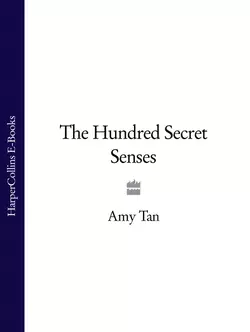The Hundred Secret Senses

Amy Tan
Тип: электронная книга
Жанр: Современная зарубежная литература
Язык: на английском языке
Стоимость: 766.24 ₽
Статус: В продаже
Издательство: HarperCollins
Дата публикации: 16.04.2024
Отзывы: Пока нет Добавить отзыв
О книге: The international bestseller from the author of ‘The Joy Luck Club’ and ‘The Bonesetter’s Daughter’.Olivia Yee is only five years old when Kwan, her older sister from China, comes to live with the family and turns her life upside down, bombarding her day and night with ghostly stories of strange ancestors from the world of Yin. Olivia just wants to lead a normal American life.For the next thirty years, Olivia endures visits from Kwan and her ghosts, who appear in the living world to offer advice on everything from restaurants to Olivia’s failed marriage. But just when she cannot bear it any more, the revelations of a tragic family secret finally open her mind to the startling truths hidden in Kwan’s unorthodox vision of the world.